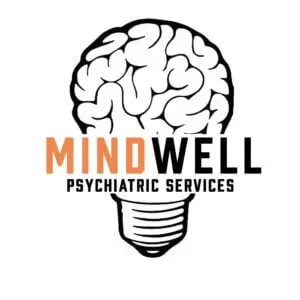Understanding the causes of mental illness is really important for helping people get better. At Mindwell Psychiatric Services, we dig into what causes of mental illness. This helps us give the right care.
It’s important to know that mental illness doesn’t come from just one thing. It’s a mix of lots of stuff. Things like genes you’re born with can play a part. But so can things that happen in your life. Like going through something really hard or being under stress for a long time.
Stuff in society can also make a difference. Things like being treated unfairly, not having enough money, or not being able to get help can make mental health worse. When he understands these big-picture issues, he can help in better ways.
Also, the way we live can affect how we feel. Eating bad food, using drugs, or not moving around enough can all mess with our mental health. When he sees all these different causes of mental illness, he can help people find the best path to feeling better. So, by looking at all these reasons together, he can give better support to folks dealing with mental health challenges.
What is Mental Illness?
Mental illness is a term used to describe a wide range of conditions that affect how a person thinks, feels, and behaves. That is to say, these conditions can impact daily life and relationships, making it crucial to understand their leading causes and symptoms. So, in this section, we’ll explore various types of mental disorders and their common symptoms. If you or someone you know is experiencing symptoms of mental illness, it’s essential to seek support from a qualified professional psychiatrist in Las Vegas.
Defining Mental Illness
Mental illness encompasses different types of conditions that affect the brain and how it functions. Therefore these conditions can vary in severity and duration. Some common types of mental disorders include depression, anxiety, schizophrenia, and bipolar disorder. Also, each type has its own set of symptoms and challenges.
Types of Mental Disorders
Depression
Depression is a type of mental illness characterized by persistent feelings of sadness, hopelessness, and loss of interest in activities once enjoyed.
Anxiety Disorders
Involve excessive worry or fear that interferes with daily life. Schizophrenia is a severe mental disorder that affects a person’s ability to think, feel, and behave clearly.
Bipolar disorder
Also known as manic-depressive illness, causes extreme shifts in mood, energy, and activity levels.
Understanding Symptoms
Symptoms of mental health disorders can vary widely depending on the type of condition and individual factors. However, some common symptoms include:
- Persistent sadness or irritability
- Feelings of worry or anxiety
- Changes in sleep patterns
- Difficulty concentrating or making decisions
- Hallucinations or delusions (in severe cases)
- Changes in appetite or weight
- Mood swings or extreme highs and lows
Recognizing the Signs
It’s important to note that experiencing occasional sadness or worry is normal. However, when these feelings persist and interfere with daily functioning, it may indicate a mental health disorder. That is to say, recognizing the signs and seeking help from mental health professionals is crucial for early intervention and mental health treatment.
In conclusion, causes of mental illness encompasses various conditions that affect how a person thinks, feels, and behaves. Therefore, understanding the different types of mental disorders and their common symptoms is essential for early recognition and intervention. Also, by recognizing the signs and seeking support from mental health professionals, individuals can receive the help they need to manage their condition and improve their quality of life.
Genetic Factors
Genetics, the stuff passed down from our parents, can play a big part in shaping who we are, including our mental health. In this section, we’ll explore how our genes influence the causes of mental illness, backed by studies and facts.
How Genetics Shape Mental Health
Genetics isn’t just about what color your eyes are or if you have curly hair. It’s also about how your brain works. Certain genes can make someone more likely to develop mental health problems. That’s because these genes can affect things like how our brain chemicals work or how we respond to stress.
Evidence from Studies
Studies by the National Institute of Mental Health and other experts have shown that genetics can account for a significant portion of the causes for mental illness. For example, research has found that if someone in your family has a mental illness, you’re more likely to have one too. This suggests a strong genetic link.
Understanding the Numbers
According to the Substance Abuse and Mental Health Services Administration, genetics can contribute to around 40-60% of the risk for developing mental health issues like depression or anxiety. This means that while genetics isn’t the only factor, it plays a substantial role in determining our mental health. Incorporating genetic testing into mental health evaluations can provide valuable insights into an individual’s genetic predisposition, helping to tailor more effective treatment plans.
Genes and Brain Chemistry
Our genes can influence how our brain chemicals, called neurotransmitters, work. These neurotransmitters are like messengers that help our brain cells communicate. Changes in these chemicals can affect our mood, behavior, and how we handle stress. So, when certain genes aren’t working right, it can throw off this delicate balance.
The Importance of Family History
One way scientists study the role of genetics in mental health is by looking at family history. If someone in your family has a mental illness, like depression or schizophrenia, it increases the chances that you might develop it too. This doesn’t mean you definitely will, but it’s something to keep in mind.
So, genetics can definitely play a role in our mental health. Studies show that our genes can influence our risk for developing mental health issues, like depression or anxiety. While genetics isn’t the only factor, it’s an important piece of the puzzle. By understanding how our genes affect our mental health, we can better support those who may be at risk and work towards effective prevention and treatment strategies.
Environmental Influences
Our surroundings, experiences, and how we’re raised can all have a big impact on our mental well-being. In this section, we’ll delve into how environmental factors, like trauma, stress, and upbringing, can contribute to the causes of mental illness.
The Impact of Trauma
Trauma, or really tough stuff we go through, can leave a lasting mark on our mental health. So, this could be anything from abuse or violence to losing a loved one. Also, experiencing trauma can increase the risk of mental health issues, like anxiety, depression, or post-traumatic stress disorder (PTSD).
Understanding Stress
We all deal with stress from time to time, but too much of it can take a toll on our mental health. For instance, stressful situations, like financial problems, work pressure, or relationship issues, can trigger or worsen symptoms of mental illnesses. That’s because stress messes with our brain chemicals and can make us more vulnerable to mental health problems.
The Role of Upbringing
How we’re raised and the environment we grow up in can shape our mental health too. If we have a stable and supportive upbringing, it can help protect us from mental health issues. But if we grow up in a chaotic or abusive environment, it can increase the risk. Also, our childhood experiences can leave a lasting impact on our mental well-being.
The Link to ADHD
Environmental factors can also play a role in attention deficit hyperactivity disorder ADHD, a medical condition characterized by difficulty paying attention, hyperactivity, and impulsivity. Factors like prenatal exposure to toxins, early childhood trauma, or family dynamics can contribute to the development of ADHD symptoms and causes of mental illness.
Recognizing the Signs
It’s important to pay attention to signs of mental illnesses, especially if someone has experienced trauma, chronic stress, or a difficult upbringing. These signs could include:
- changes in mood or behavior
•withdrawal from activities
• difficulty concentrating,
• problems sleeping.
By recognizing these signs early on, we can intervene and provide support.
In conclusion, environmental factors like trauma, stress, and upbringing can have a significant impact on our mental health. Experiencing trauma or chronic stress can increase the risk of developing mental illnesses, while a stable and supportive environment can provide protective factors. By understanding how these environmental influences affect our mental well-being, we can work towards creating healthier and more supportive environments for everyone.
Psychological and Social Factors
Mental health isn’t just about our genes or our environment. It’s also influenced by our thoughts, feelings, and how we interact with others. In this section, we’ll explore the psychological and social factors that can contribute to the causes of mental illness.
Psychological Causes of Mental Illness
Our personality traits, how we cope with stress, and our thought patterns can all play a role in our mental well-being. For example, someone who tends to worry a lot or has low self-esteem may be more prone to anxiety or depression. Coping mechanisms, like avoiding problems or turning to substances for relief, can also impact our mental health.
Social Causes of Mental Illness
Our relationships and social interactions can have a profound effect on our mental health. Isolation, feeling disconnected from others, or being bullied can increase the risk of developing mental illnesses. Family dynamics, such as conflict or lack of support, can also play a role. Positive relationships and a strong support network, on the other hand, can be protective factors for mental health.
The Role of Diagnosis and Tests
When it comes to understanding mental health, diagnosis and medical test can help pinpoint underlying issues. Mental health professionals use assessments and interviews to gather information about a person’s symptoms, thoughts, and behaviors. While there are no lab tests to diagnose mental illnesses, these evaluations are crucial for guiding treatment and support.
Addressing Mental Illness Stigma
Stigma, or negative attitudes and beliefs about mental illness, can further complicate the picture. People with mental health issues may face discrimination or judgment from others, which can prevent them from seeking help. Challenging stigma through education and awareness is essential for creating a more supportive and inclusive society.
Brain Stimulation: Exploring Treatment Options
In addition to therapy and medication, brain stimulation techniques like electroconvulsive therapy (ECT) or transcranial magnetic stimulation (TMS) can be effective treatments for certain mental health disorders. These interventions target specific areas of the brain to help alleviate symptoms and improve quality of life.
In conclusion, psychological and social factors play a significant role in our mental health. Our personality traits, coping mechanisms, and relationships can influence our risk of developing mental illness. By addressing stigma, providing support, and exploring various treatment options, we can work towards promoting mental well-being for all.
Physical Health and Mental Illness
Mental health isn’t just about our thoughts and feelings; it’s also tied to how our bodies are doing. In this section, we’ll explore how physical health issues like chronic illnesses and brain injuries can affect our mental well-being, and what research tells us about this connection.
The Link Between Body and Mind
When our bodies face challenges, it can affect how we feel emotionally. Conditions like diabetes or heart disease can make us more likely to feel down or anxious. Similarly, if someone gets a brain injury or has a disorder like Parkinson’s disease, it can mess with their mood and thinking.
How Our Bodies Influence Our Brains
There’s real science behind how our physical health impacts our mental well-being. For instance, when our bodies have inflammation from chronic illnesses, it can also mess with our brain chemicals and make us more prone to feeling depressed. Changes in our brain structure or how our brain chemicals work can also happen with neurological conditions, affecting how we feel and act.
What Research Tells Us
Medical education and research have shown that people with chronic illnesses are more likely to struggle with mental health issues. Researchers are also exploring treatments like brain stimulation therapy, which can help with conditions like major depression by targeting certain areas of the brain. While there aren’t blood tests for mental illnesses, researchers are looking into whether certain markers in our blood could give clues about our mental health.
Dealing with Brain and Body Challenges
Conditions like Alzheimer’s disease or Parkinson’s disease not only affect our thinking but can also impact our mood and behavior. Understanding these connections is important for giving good health care to people dealing with both physical and mental health issues. By taking care of both aspects, doctors can better help their patients feel better overall.
In summary, our physical health and mental well-being are closely connected. Chronic illnesses, brain injuries, and neurological disorder can all affect how we feel emotionally. By understanding these links and exploring treatments that address both our bodies and minds, we can provide better support for those facing mental health challenges related to their physical health.
Substance Use and Mental Health
When we talk about mental health, we can’t ignore the impact of substance use. In this section, we’ll dive into how using drugs or alcohol can mess with our mental well-being, and what we can do about it.
The Link Between Substance Use and Mental Health
Using drugs or alcohol can really mess with our minds. Sometimes, people use them to cope with stress or other problems, but it can actually make things worse. And for those who already have mental health issues, substance use can make their symptoms even harder to deal with.
How Substance Use Makes Things Worse
Drugs and alcohol can trigger mental health conditions or make existing ones worse. For instance, someone might use alcohol to relax, but it can end up making them feel more anxious. Drugs like cocaine or meth can mess with our brains and make us feel paranoid or even see things that aren’t there.
Getting Help Early
Preventing substance abuse and tackling it early is really important. Learning about the risks of using drugs or alcohol and finding healthier ways to cope can make a big difference. And if someone is already struggling, reaching out for support from a medical professional or joining a support group can help them get back on track.
Taking the First Step
If you or someone you know is dealing with substance abuse or mental health issues, don’t be afraid to ask for help. Talking to a doctor or counselor can provide guidance and support. There are also online tools like symptom checker that can help you understand what’s going on and connect you with the right resources.
In conclusion, substance use can really mess with our mental health. But by understanding the risks and reaching out for help early, we can take steps to protect our well-being. Whether it’s talking to a medical professional or finding support online, taking that first step can make a world of difference.
Treatment and Management of Mental Illness
Understanding the causes of mental illness is just the first step. Equally important is knowing how to manage and treat these conditions effectively. In this section, we’ll explore current treatment methodologies, including therapy, medication, and alternative treatments, and discuss the importance of seeking help.
Exploring Treatment Options
Treating mental illness involves a combination of approaches tailored to individual needs. Therapy, such as cognitive-behavioral therapy (CBT) or talk therapy, helps individuals explore their thoughts and feelings, develop coping strategies, and make positive changes in their behavior. Medications, like antidepressants or antipsychotics, can also be prescribed to help manage symptoms of mental health disorders.
The Role of Therapy
Therapy is a cornerstone of mental health treatment, offering a safe space to explore emotions and challenges. Through therapy, individuals can gain insight into their behaviors and thought patterns, learn healthy coping skills, and build resilience. Therapy can be conducted one-on-one, in groups, or with families, depending on the individual’s needs.
Medication as a Treatment Tool
Medication prescription and management can also play a crucial role in managing mental health conditions, especially for those with severe symptoms. Antidepressants, for example, can help regulate mood and reduce feelings of sadness or anxiety. Antipsychotic medications may be prescribed for individuals with psychotic disorders to manage hallucinations or delusions. It’s important to work closely with a healthcare provider to find the right medication and dosage.
Alternative Treatments and Self-Care
In addition to traditional therapy and medication, many individuals find relief through alternative treatments and self-care practices. These may include mindfulness and meditation, exercise, art therapy, or acupuncture. While these approaches may not work for everyone, they can complement traditional treatments and promote overall well-being.
Importance of Seeking Help
Seeking help for mental health issues is crucial, yet stigma and fear often prevent individuals from reaching out. It’s essential to understand that mental illness is not a sign of weakness, but a medical condition that deserves treatment and support. By seeking help early, individuals can prevent symptoms from worsening and develop a comprehensive treatment plan tailored to their needs.
Overcoming Stigma and Barriers
Addressing the stigma causes of mental illness is essential for improving access to treatment and support. By raising awareness, challenging misconceptions, and promoting open dialogue, we can create a more supportive environment for those struggling with mental health issues. No one should feel ashamed or embarrassed to seek help for their mental well-being.
In conclusion, treating and managing mental illness requires a comprehensive approach that addresses individual needs and preferences. Therapy, medication, and alternative treatments all play a role in promoting recovery and improving quality of life. By seeking help, overcoming stigma, and working with healthcare professionals to develop a treatment plan, individuals can take control of their mental health and find hope for the future.
Conclusion
In wrapping up, it’s really important to know what are the causes of mental illness. When we understand these reasons like genetics, environment, and substance use, we can better help those struggling.
Getting help early, whether through therapy, medication, or other treatments, is key to feeling better. At Mindwell Psychiatric Services, he’s here to support you every step of the way. So, let’s break down stigma and talk openly about mental health, so everyone can get the help they need.
FAQs
What are the causes of mental illness?
Mental illness can come from different things like genes, tough experiences, or using drugs.
How do genes affect mental health?
Genes can make someone more likely to have mental health problems.
What things in our surroundings affect mental health?
Tough stuff like bad experiences, stress, or how we’re raised can really affect how we feel.
What kinds of talking therapy help with mental health?
Talking with someone can help. There are different types like talking, group, or family therapy.
Can using drugs make mental health worse?
Yes, drugs can make mental health problems worse or even cause them.
Do medicines work for mental health?
Medicines can help some people feel better, but it depends on the person and the problem.
Are there other things besides therapy and medicine that help?
Yes, things like exercise, art, or learning to relax can also help people feel better.
Is it important to get help for mental health?
Yes, getting help is really important for feeling better and making life easier.
How can I help someone who's struggling with mental health?
You can support them, help them find help, and give them information about places they can go for support.
How do I stop people from judging me or others for mental health problems?
We can help by talking about mental health more openly, learning about it, and supporting each other.





